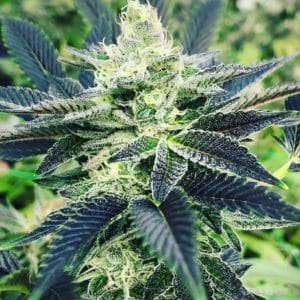
Florida’s Green Gold Rush: The Economic Impact of Legalizing Recreational Marijuana
Trulieve’s Push, Potential Tax Windfall, and the Hurdles Ahead in Shaping Florida’s Recreational Marijuana Future.
The promising prospect of legalizing recreational marijuana in Florida is being presented as a potential source of higher sales tax revenue than that generated by alcohol and tobacco. In fact, many are viewing it as green gold for the state’s tax coffers.
Trulieve is Florida state’s largest medical cannabis producer. They are actively promoting the economic benefits of recreational marijuana for the Sunshine State.
The Trulieve grow house, located in Monticello, Jefferson County, is the largest in the nation, covering 85 acres with over a million square feet under its roof. The facility employs over 400 people, where they grow, clip, sort, and label marijuana products designated as “medicine” for Florida’s medical marijuana market.
At this time Trulieve is spearheading the initiative to let voters decide on the legalization of recreational marijuana. Their political committee, “Smart & Safe Florida,” has invested over $40 million in collecting petitions to include the initiative on the 2024 general election ballot. Currently, over a million signatures have been collected in support of placing recreational on the ballot.
If legalized, marijuana sales could significantly boost Florida’s economy. Estimates suggest that it could double or triple the current $1.4 billion medical cannabis industry almost immediately.
An analysis of other states that have legalized marijuana indicates that Florida could generate a minimum of $196 million annually in state and local sales tax revenue, potentially reaching as high as $431 million. The initial cost to establish regulatory control is estimated at $20 million, with an annual expenditure of $11 million thereafter.

This potential tax revenue would rival that of alcohol and tobacco, which currently contribute $340 million and $220 million, respectively, in sales taxes to the state each year.
However, even with the possibility of the Florida Supreme Court allowing the recreational marijuana amendment on the 2024 ballot, success is not guaranteed. In Ohio, recreational cannabis was approved by 57% of voters, but in Florida, passage requires a 60% majority.
Kim Rivers, the CEO and Founder of Trulieve acknowledges that merely getting the proposed amendment on the ballot is not sufficient; a comprehensive education phase involving television, radio ads, and social media messaging will be crucial to persuade voters that marijuana is not only for patients but could be a viable option for adults over the age of 21.
As the Sunshine State teeters on the cusp of potential change, the outcome of the proposed amendment will not only shape the state’s economic landscape but will also influence the broader conversation on responsible cannabis use. In order for recreational marijuana to become a reality, public opinion must shift and regulatory decisions be ironed out for the state to reap the potential economic benefits.








